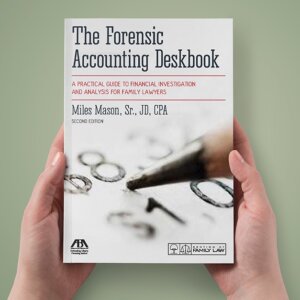How to Manage Joint Debts After an Uncontested Divorce
Going through an uncontested divorce in Alabama can be a challenging process, especially when dealing with joint debt obligations. It’s essential to take the necessary steps to manage joint debt obligations effectively to avoid any financial challenges in the future. Here’s what you need to know about managing joint debt obligations after an online divorce in Alabama.
The first step to managing joint debt obligations after divorce is to understand your debt obligations. This includes mortgages, car loans, credit card debt, and any other types of debts that you and your ex-spouse shared during the marriage. Most states, including Alabama, are equitable distribution states, which means that assets and liabilities acquired during the marriage are split equally between the spouses during the divorce proceedings. However, keep in mind that equitable distribution does not necessarily imply an equal split of the debt. The court may consider several factors such as each spouse’s earning capacity, financial needs, and future earning prospects before deciding on a fair split of the debt.
The divorce decree should outline which spouse is responsible for paying which debts. If the divorce decree is silent on this issue, Alabama law generally provides that both parties are equally responsible for joint debts incurred during the marriage.
Once you know which debts you are responsible for, contact your creditors to inform them of your change in marital status and discuss your options for repayment. You may be able to negotiate a payment plan or settlement that works for your new financial situation.
After determining your joint debt obligations, creating a payment plan to manage these debts can help you avoid any legal and financial repercussions. You and your ex-spouse can either agree to split the debts equally or allocate debts based on who incurred the obligation or who benefited from the debt. It’s important to ensure that you are both financially capable of managing the debts you’re responsible for. Consider developing a realistic budget that will prioritize the payments to avoid accumulating more debt.
Paying off joint debts entirely can be the most effective way to eliminate financial obligations tied to your ex-spouse, regardless of who the debt belongs to. Paying off the debt may be the best option, especially when dealing with credit cards, as one party can quickly accumulate additional debt without the other spouse knowing.
If possible, close any joint credit card or loan accounts to prevent further charges or liability for the other party’s spending. If you cannot close the account, ask the creditor to remove your name from the account.
After the divorce, it’s important to monitor your credit reports regularly to ensure that joint debts are being paid on time and that there are no unauthorized charges or accounts in your name.
If you are responsible for paying a joint debt, you may want to consider refinancing the debt in your name only. This can help you establish credit in your own name and reduce your reliance on your former spouse’s credit history. If your joint debt obligations include a mortgage or other type of loan that is secured by the property, then refinancing or selling the property can be an option. If one party is interested in keeping the property, he or she may choose to refinance alone or negotiate with the lender to assume the mortgage using a novation agreement. A novation agreement will require both parties to agree and release one party from the mortgage. Alternatively, if both parties wish to sell the property, any proceeds from the sale of the property can be used to pay off any joint debts. If the sale of the property does not cover the joint debts completely, there may be the potential for the court to issue a judgment for one party to pay the remaining balance.
Managing joint debts after an uncontested divorce requires communication and collaboration between both parties. Reach an agreement in writing, outlining each party’s responsibility regarding the assigned debt obligations.
If you are having difficulty managing joint debt obligations after an uncontested divorce in Alabama, it may be helpful to consult with an experienced divorce attorney in Birmingham, Alabama. They can review your divorce decree and provide guidance on your legal options for resolving any disputes or issues related to joint debts. An experienced attorney can help you navigate the legal process, negotiate with your ex-spouse, and help you protect your legal rights and financial interests..
Managing joint debt obligations after a divorce in Jefferson County can be a complicated and challenging process, but with effective communication and collaboration, both parties can manage the obligations smoothly. It’s important to maintain open communication and work together to pay off joint debts, create a clear payment plan, and seek legal help when needed. By taking these steps, both parties can minimize financial and legal complications and move forward with your financial life.
Attorney Steven A. Harris regularly blogs in the areas of family law, bankruptcy, probate, and real estate closings on this website. Mr. Harris tries to provide informative information to the public in easily digestible formats. Hopefully you enjoyed this article and feel free to supply feedback. We appreciate our readers & love to hear from you!
Sharing is caring:







